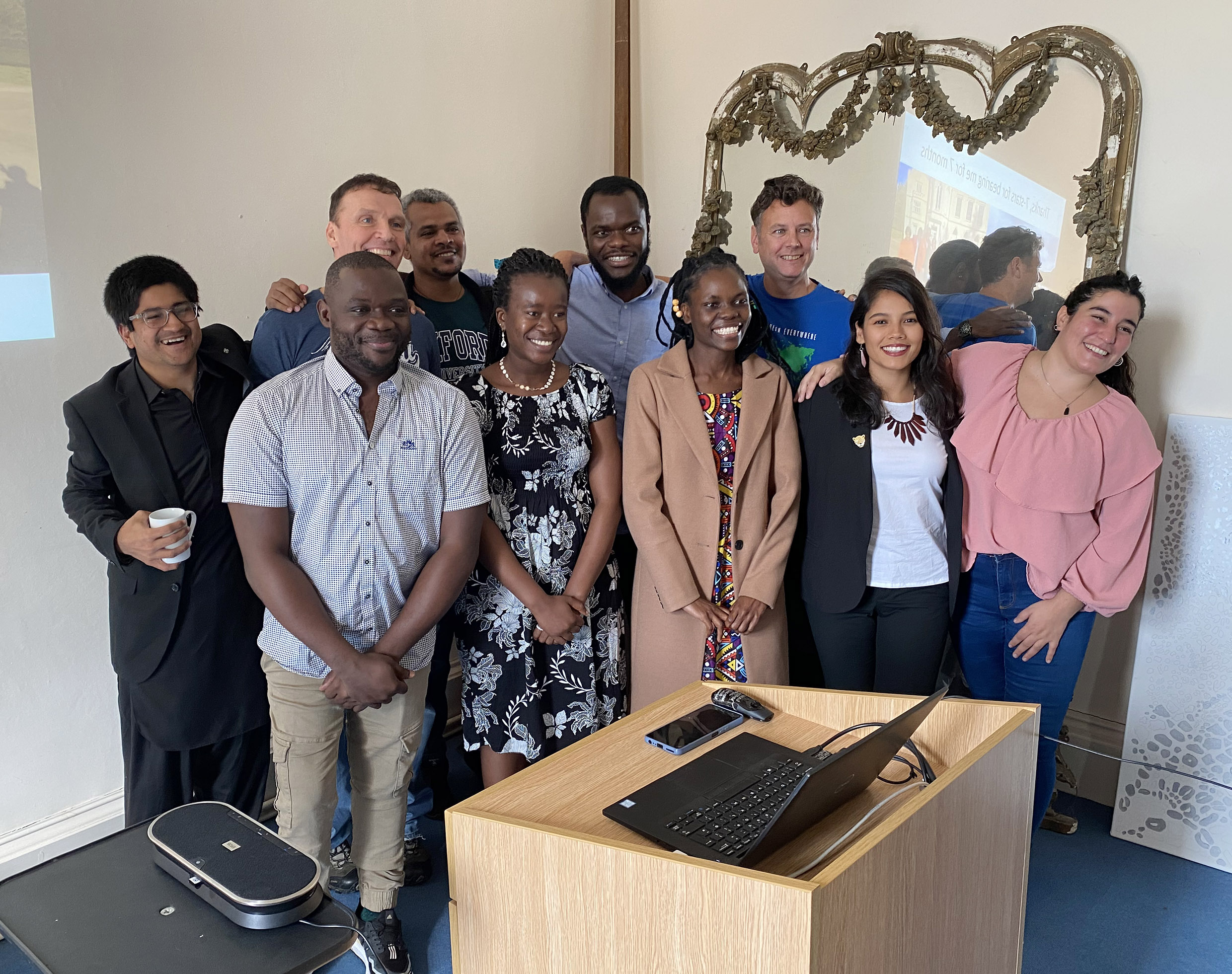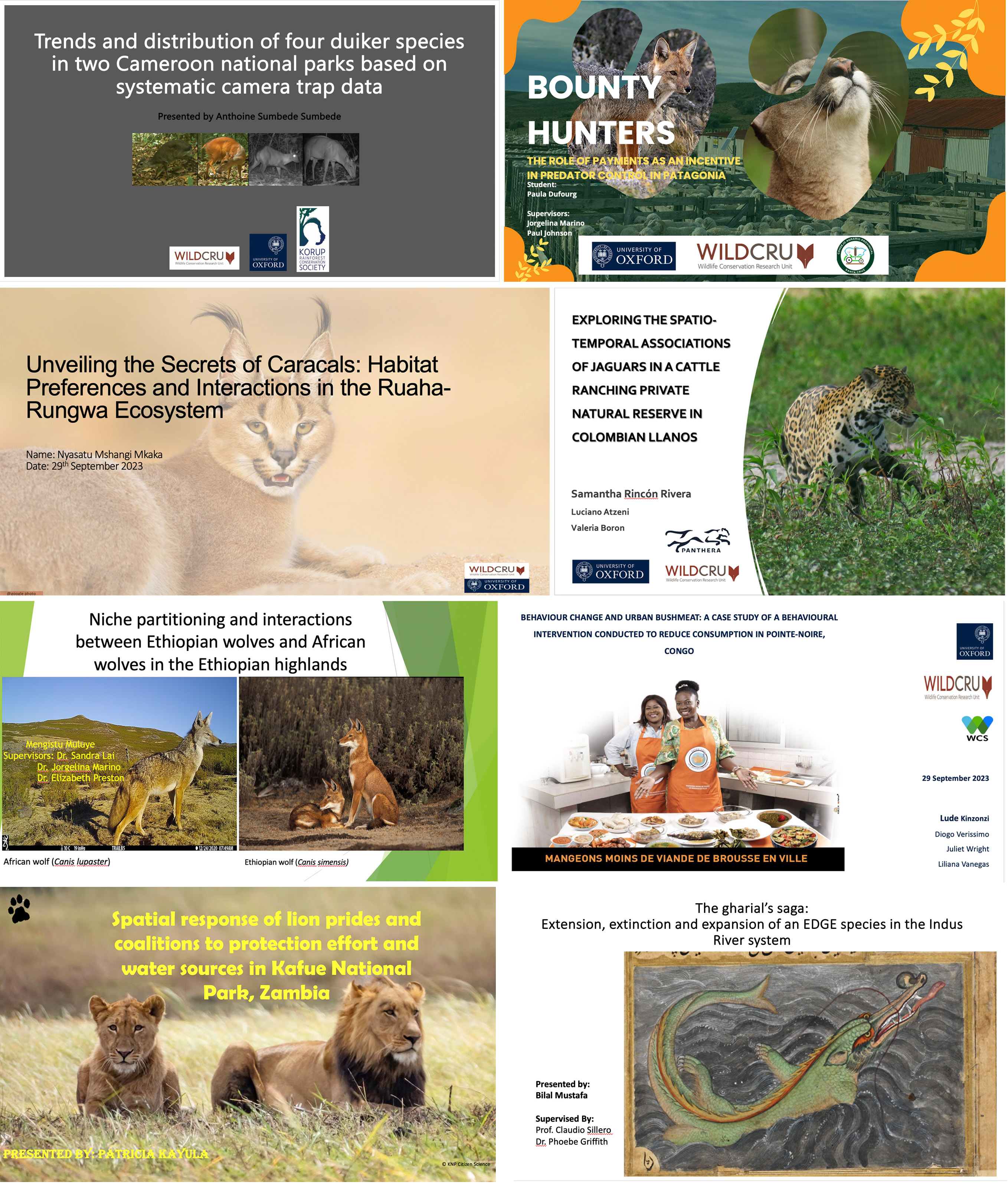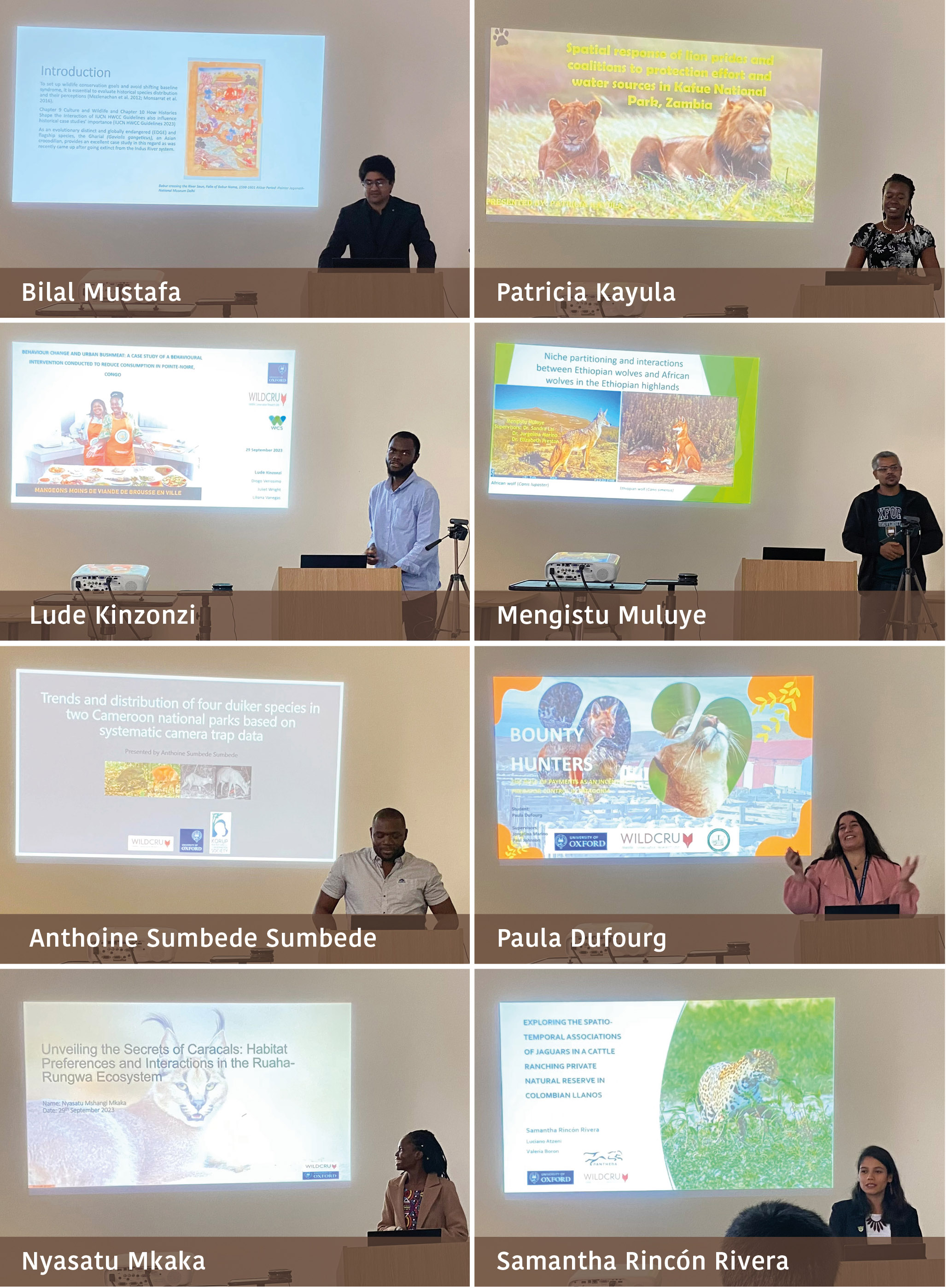News
Congratulations to the Diploma class of 2023
Established in 2008, the Recanati-Kaplan Centre Post-Graduate Diploma in International Wildlife Conservation Practice teaches cutting-edge techniques for monitoring and management of wildlife and their habitats. The course is delivered by Oxford University’s WildCRU (the Wildlife Conservation Research Unit, part of Department of Biology) in collaboration with the Department Continuing Education, primarily funded by Panthera.
Modules in wildlife ecology and behaviour, species and biodiversity monitoring, population management, habitat assessment, human populations and conservation are complemented by an array of practical skills from first aid to proposal writing. These set modules are followed by a customised research project where students use their own data to explore specific topics and conservation challenges.
Course participants are aspiring young conservationists from biodiversity-rich countries, with WildCRU focusing on the most talented and least privileged applicants who would not normally have the opportunity to attend a world-class university. 121 students from 48 countries have completed the course so far – including 47 from Africa, 43 from Asia, 24 from South America, 3 from North America, 2 from Europe and 1 from Oceania. Many Diploma alumni continue research studies – with 55 embarking on PhDs and 19 on MScs so far. Numerous publications result from Diploma research projects and alumni develop lasting collaborations with WildCRU, generating diverse jobs and opportunities across the globe. Diploma alumni have been authors on over 400 scientific papers to date.
At the end of last week, the eight 2023 students gave their final research project presentations to the WildCRU team. In order of appearance; Anthoine Sumbede Sumbede presented his work on trends and distribution of four duiker species in two Cameroon National Parks based; Paula Dufourg presented on the role of payments as an incentive in predator control in Patagonia; Nyasatu Mkaka on caracal habitat preferences and interactions in Tanzania’s Ruaha-Rungwa ecosystem; Samantha Rincón Rivera on spatio-temporal associations of jaguars in a private reserve in Colombia’s llanos; Mengistu Muluye on niche partitioning and interactions between Ethiopian wolves and African wolves in the Ethiopian highlands; Lude Kinzonzi on the impact of a behaviour change campaign aiming to reduce bushmeat consumption in the Republic of Congo’s Pointe-noire; Patricia Kayula on spatial response of lion prides and coalitions to protection effort and water sources in Zambia’s Kafue National Park and Bilal Mustafa on the extension, extinction and expansion of gharial in the Indus River system.
Huge congratulations to them all, along with the various staff, researchers and students who taught, mentored and supported them.








